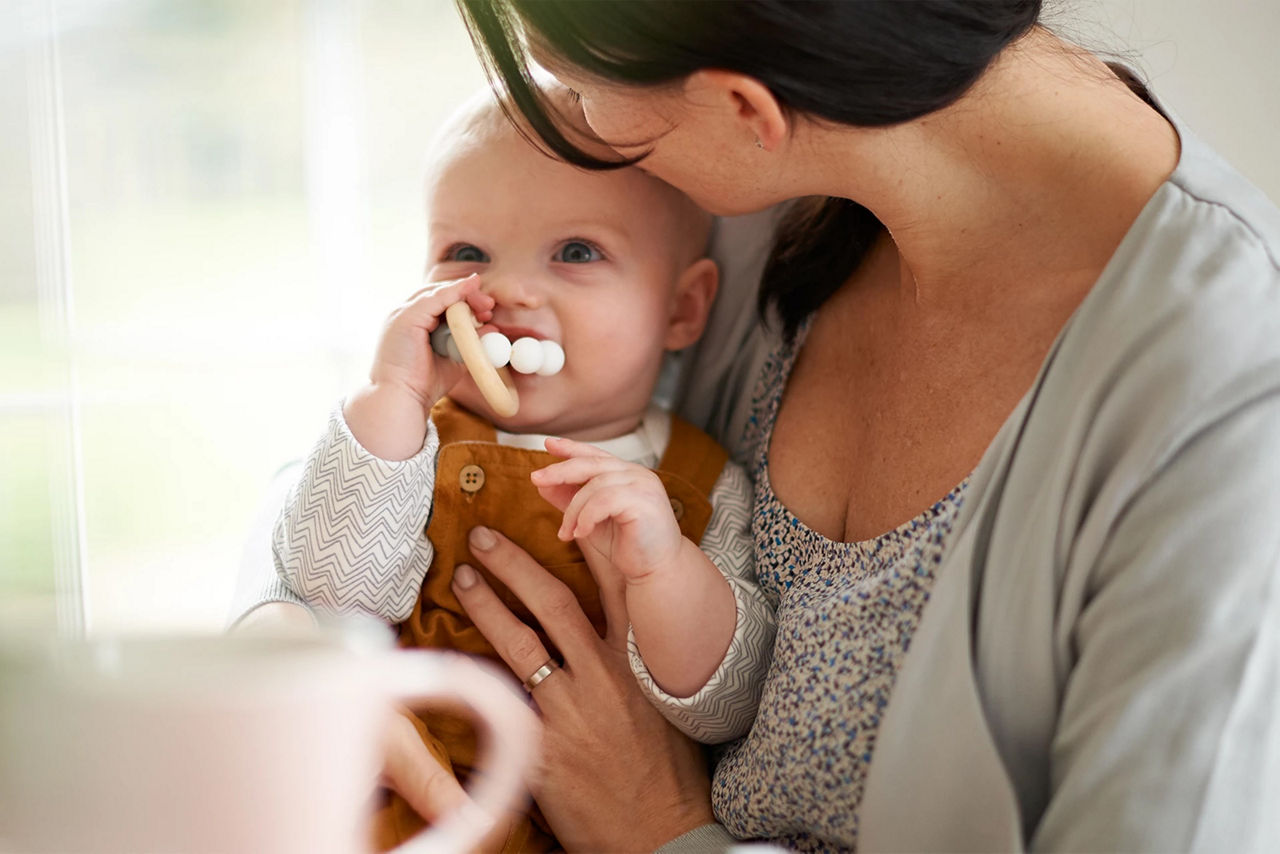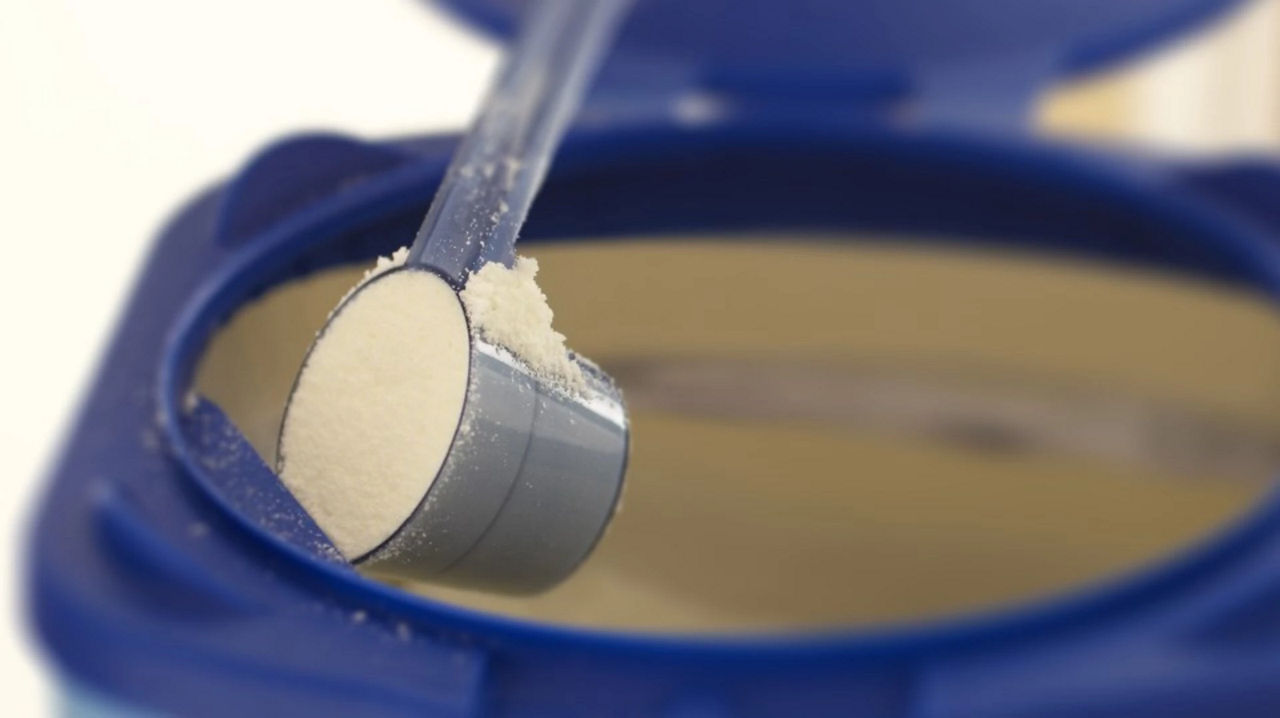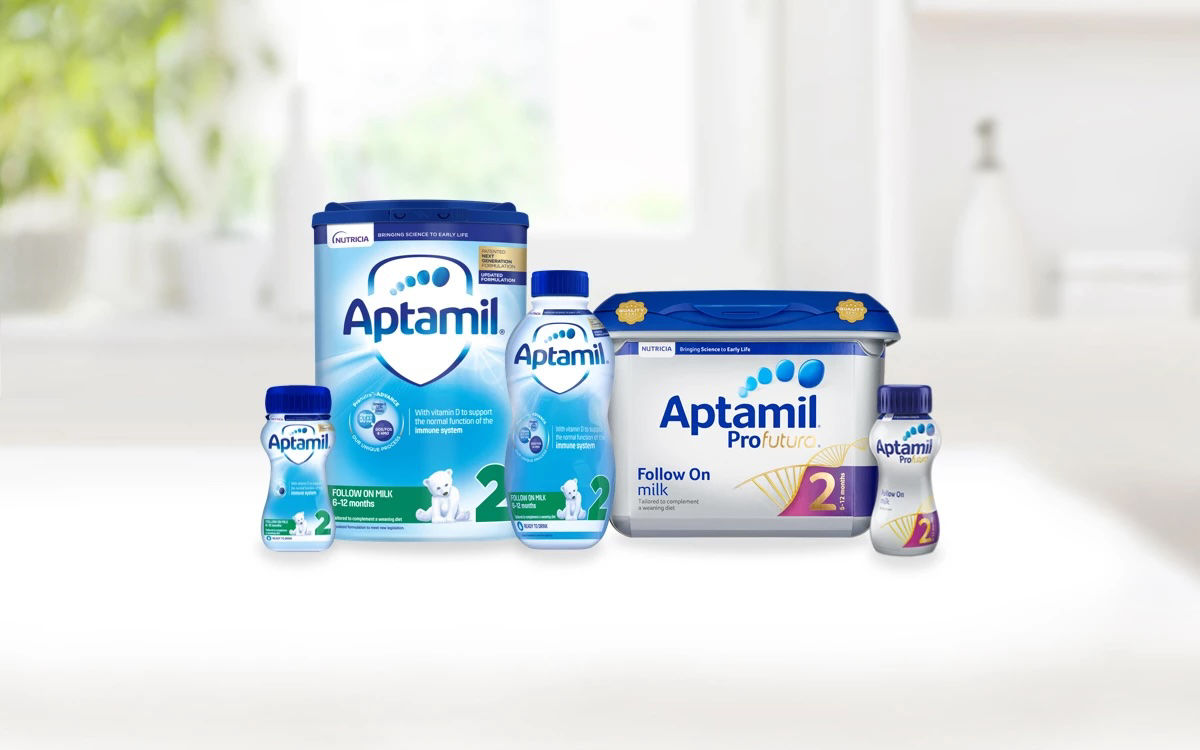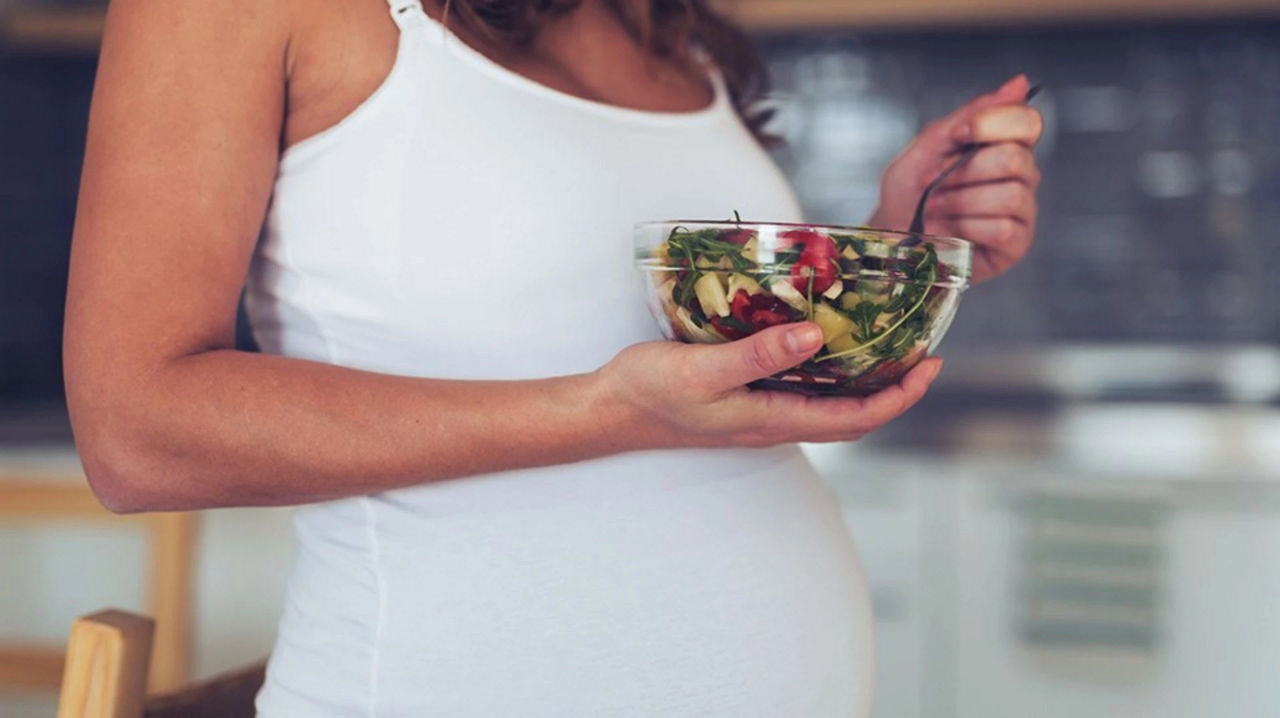We are committed to ensuring high quality in everything we do, from Aptamil products to our manufacturing processes and packaging. We occasionally receive product queries, and have answered some of these below; if you can’t find your question in the list, please contact us.
As well as our expert careline support, Aptamil have a dedicated team to address complaints, and want to reassure you that every effort is made to thoroughly investigate all issues. Our complaints procedure will give you an idea of what to expect when you get in touch. In many cases, we'll be able to investigate and follow up without requesting product samples, but in some instances we will require them for further analysis, so please keep samples where possible.
Aptamil FAQs & Contact Us

Aptamil Organic Discontinuation FAQs
We constantly review our ranges and will be discontinuing Aptamil Organic in all retailers.
All retailers will stop selling Aptamil Organic at different times throughout 2023, to ensure parents can continue the journey so you might be able to find products in some retailers longer than others.
It is completely safe for you to change your little one’s formula immediately. We offer a range of formulas which may suit parents and their child. It is safe for parents to change their child’s formula if they are on a non-specialised formula milk, and they should be able to transition to any of our non-specialised Aptamil formula milks without concern.
However, every baby is different, and some babies may experience settling issues when changing formula milks due to slightly different tastes, textures and composition. This is normal and any symptoms should be minimal (such as changes in stool frequency and colour).
We recommend allowing some time for your baby to settle with a new formulation, however if you have any concerns please discuss with your healthcare professional.
In order to minimise any settling issues, parents might prefer to do a gradual transition. Gradually moving over may allow time for your little one to adjust onto the new composition of the formula milk, and this can be particularly relevant for changing onto milks which have a different composition profile.
To transition to a new formula milk gradually, you could replace one bottle of your baby’s current formula milk with one bottle of your baby’s new formula milk each day, keeping all other feeds to the previous one. Continue this way, keeping the number of feeds with the new formula each day until the feeds are with the new baby/toddler milk.
It might be a good idea to introduce the new feed when your little one is not too tired or irritable, but it is worth exploring to see what works for you.
We have reviewed our ranges and chosen to de-list the Aptamil Organic range so that we can focus on other recipes at this time.
Please rest assured our Aptamil Organic formulations are safe to use still and each recipe meets our strict quality standards.
Frequently asked questions
Preparation and storage of baby and toddler Milks
Our preparation instructions are in line with the Department of Health and HSE Guidelines in terms of making up safe feeds.
The guidance advises you to boil 1 litre of fresh tap water. Then leave the water to cool for no more than 30 minutes, so that it remains at a temperature of at least 70C.
This is the ideal temperature to make up a feed, as any bacteria present will be killed and the powder will also mix effectively.
Making up Specialist milks - Specialist milks often have different mixing instructions; it is important that the parent reads the instructions carefully and follows them, as using another method of preparing my affect the ability of the milk to mix effectively.
Our preparation instructions are in line with the Department of Health and HSE Guidelines in terms of making up safe feeds.
The guidance advises you to boil 1 litre of fresh tap water. Then leave the water to cool for no more than 30 minutes, so that it remains at a temperature of at least 70C.
On average it will take a full kettle around 30 minutes to reduce down in temperature to 70 degrees. This is the ideal temperature to make up a feed, as any bacteria present will be killed and the powder will also mix effectively.
It is safest to prepare a fresh feed each time you need one. However, sometimes you may need to make a batch of feeds that will last you 24 hours.
To safely store a batch of prepared milk feeds:
- Make up the number of feeds required following the instructions on pack.
- Place the cooled bottles/beakers in the back of the fridge (not in the door of the fridge, to make sure the temperature of the feeds are kept stable).
- Make sure the temperature of the fridge is set to 5°C or less.
- The milk feeds stored at the back of the fridge will be fine to use for up to 24hours, throw away any feed not used after this.
Using a feed stored in the back of the fridge:
- Remove the bottle/beaker from the fridge just before you need it.
- You can feed it cold or if you prefer to warm it, place the bottle in a bowl of warm water, making sure the level of the water is below the neck of the bottle. You can also use a bottle-warmer.
- Do not warm the feed for more than 15 minutes.
- Check the temperature of the milk by dripping a little onto the inside of your wrist. It should feel lukewarm, not hot.
- Once you take a feed out of the fridge you must discard any unfinished feed after 2 hours.
As we have not tested the products safety or efficacy after freezing we can't recommend or advise doing this. This applies to both our ready-to-use and powdered formulations.
We would advise following the exact instructions on pack about preparation and storage.
When follow-on or toddler milk are an ingredient in a recipe, this meal may be frozen.
We are sorry that this has happened despite the care we take in our factory to ensure that all packs contain a scoop. We have an automated scoop dispenser and each pack is examined by a camera that will reject any Powder formula that doesn’t contain a scoop. As a temporary measure, we can advise you that one scoop will be approximately equivalent to 2 x 5ml level teaspoons. Please contact us and we can arrange to send out a replacement scoop.
We take meticulous care in all our factories, production lines and warehouses but we have no control over the handling of our products once they leave our warehouses. A swollen carton or spoilt formula milk indicates that the packaging must have become damaged at some point, allowing the entry of air. As soon as the formula milk comes into contact with air, it will start to spoil. Please contact us and we can arrange for the return of the carton or bottle. We can then examine it to see if we can determine the nature of the damage.
It is important that the formula milks are made up according to the instructions on the pack. We do check the mixing properties of all of our batches of formula milk powder before they are released for sale from our factory.
If you are making up the milk in line with the pack guidance and are still experiencing difficulties, please contact us for further advice. We may wish to arrange for the return of the pack so that we can carry out a thorough check in our laboratory.
Ingredients
The presence of fish oils in some of our formulations prevents us from labelling them as vegetarian.
Also, rennet is used as a processing aid in our baby milks to separate whey and casein, which are then added into baby milks in the right amounts. As a processing aid, rennet is not an ingredient, and there should not be any rennet present in the final product. We source whey and lactose from a variety of suppliers some of which use vegetarian rennet while others use the traditional source of rennet, which is sourced from Cow origin. Therefore we cannot guarantee that all the whey and lactose produced is from a vegetarian source.
The reason Aptamil cereals are not suitable for vegetarians is because the whey powder may have been produced using an animal enzyme called rennet. As a processing aid, rennet is not an ingredient, and there should not be any rennet present in the final product. However, we cannot guarantee that all the whey powder produced is from a vegetarian source.
Choice of baby and toddler Milks
It is always best to speak to your Healthcare Professional with regards to which product is best suited for your little one. They will be best at advising you on this.
It is your decision in how you choose to transition to our new formulation. Some parents will choose to move straight over to the new formulation, however, some do prefer to move over gradually. Gradually moving to the new formulation allows little one’s digestive system to adapt to the new product’s compositional profile.
How to contact us if you have an Aptamil complaint
You can contact us by calling our Quality Specialist Team on 1800 22 1234.
We are available to help 8.30am - 5.30pm, Monday - Friday.
Our expert team aims to resolve most queries immediately when you contact us. We take any product quality complaint very seriously, so for these you’ll be referred to our dedicated Quality Specialist Team.
We investigate every issue thoroughly and will be able to resolve many complaints straight away.For some, we may request to analyse product samples; in this case we’ll arrange for packaging to be sent out to you for posting. Please keep samples where possible.
Any samples received are exhaustively examined by our Quality Specialist Team in consultation with factory experts and/or independent external specialists as required. Depending on the analysis involved, this can take several weeks.
At the end of any investigation we will send you an outcome letter with a reimbursement including the value of any product affected. We appreciate every concern that is brought to our attention and hope our comprehensive approach provides reassurance for the future.
Related articles
Product Quality Affairs
More related articles

Get in touch with our Careline experts
Our nutritionists and feeding advisors are always on hand to talk about feeding your baby. So if you have a question, just get in touch




